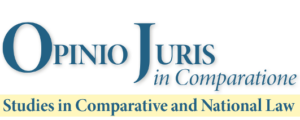Regulating Algorithms in The European Data- Driven Economy: The Role of Competition Law and Civil Liability
Authors: Andrea Parziale
ABSTRACT
While showing the potential to make the market more competitive and efficient, algorithms are acknowledged to pose a challenge to competition law enforcement. This is because algorithmic tacit collusion does not amount to an outright agreement but is something more than mere market parallelism, which is normal in competitive markets. This essay reviews the economic and legal scholarship, the national and supranational case law and the supranational policy debate on this issue to explore if and how competition law can play a role in clarifying such a grey area, without discouraging technological innovation and economic development. In this regard, this essay finds that, while the case law has already addressed algorithms implementing explicit anticompetitive agreements under Article 101 TFEU, scholars fail to agree on how to tackle algorithmic tacit collusion. This has come under the radar of ongoing policy initiatives, such as the European Commission’s New Competition Tool initiative. Waiting for innovative regulatory and competition law solutions to better tackle algorithmic collusion, this essay proposes to use, as an alternative to Article 101 TFEU, the notion of collective abuse of dominant position under Article 102 TFEU. Finally, this essay considers how civil liability and private enforcement may contribute to competition law enforcement against algorithmic collusion.
Keywords: Competition Law – Concerted practice – Collective abuse of dominant position – Algorithmic collusion – Private Enforcement

